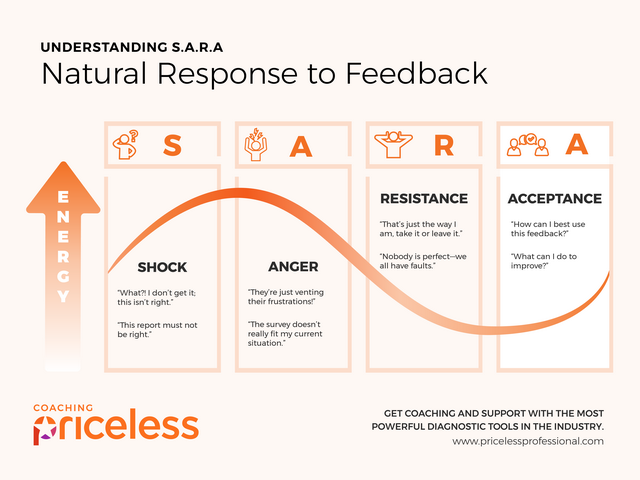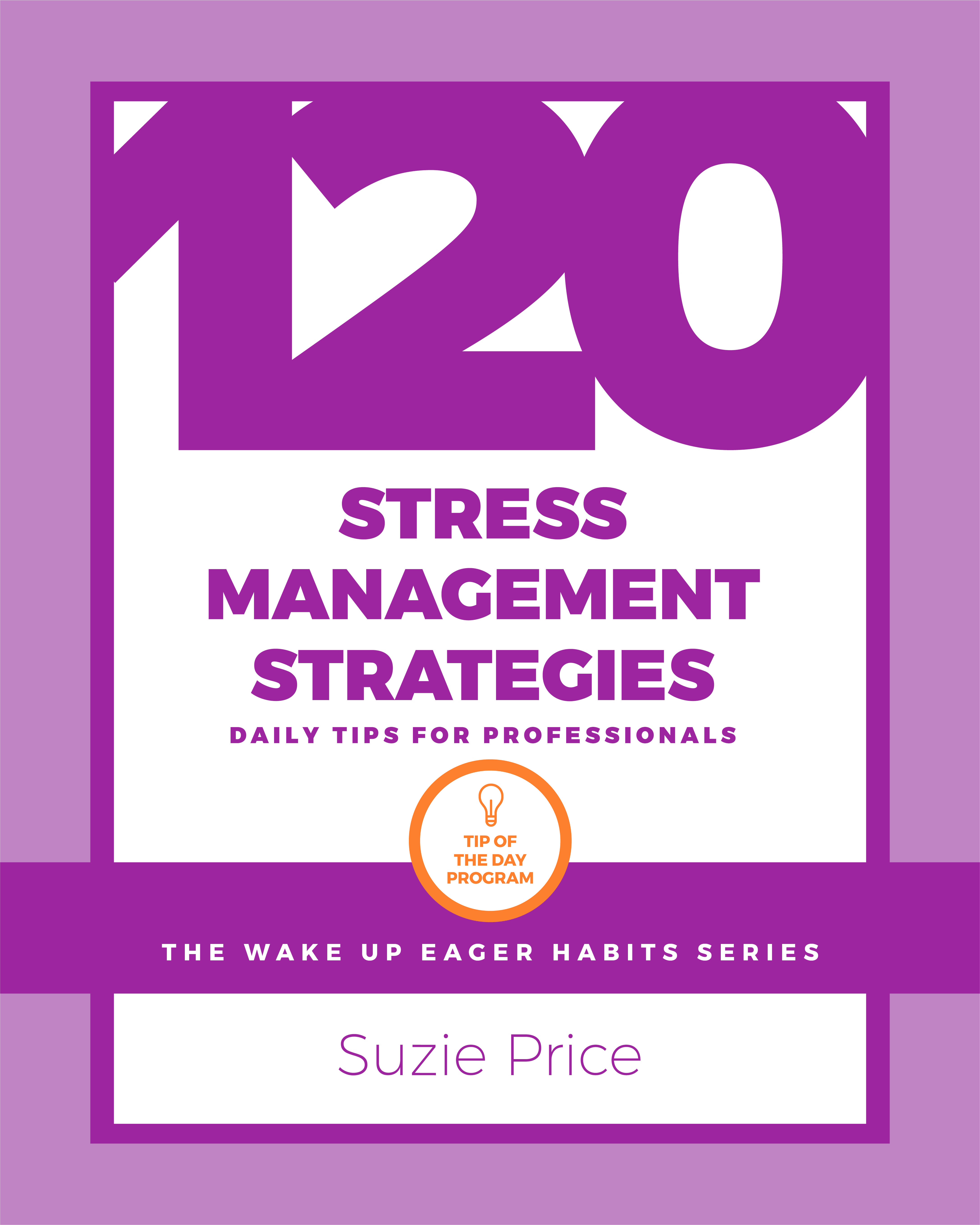The Know How You Need & the Tools to Get You There... Get Certified >

How To Overcome Fear
andResistance to Feedback Page 4
This is Page 4 of How to Overcome Fear and Resistance to Feedback where I am reviewing the four feedback acceptance steps that can be easily remembered with the acronym: H.E.L.P.
On this Page. I'll share more about the 4th Step: P. Pick What You Use.
- H. How Important Feedback Is…
- E. Examining Why
- L. Learning Balance
- P. Pick What You Use
Step 4 P. Pick What You Use

The last insight I’ll share here on overcoming fear of feedback is this important understanding: All feedback may not be about you, but all feedback IS for you. Take a minute to write that down. Reread it, and remember it.
Feedback comes to you by way of each person’s DISC behavioral style. One person might want you to get to the bottom line quickly (High D's), and another might want you to provide all the details and the logic (High C's). In addition, we all have different life views and experiences that, rightly so, cause each of us to have our own goals, preferences, and biases around what we think is “right” and what we think other people should do.
Feedback is often another person’s perception; it is not always ‘the truth’ or the only way. It’s just one person’s perception.
But knowing what another person's perceptions are, is powerful. Once you know, you can begin to understand what other people see. You can look at situations from a different vantage point. And, with this broader view of information, you can make better decisions about your actions.
Recommended Feedback Acceptance Action:
- Write this Mantra down and remember it. It can
help you remain open to feedback and less fearful of it:
All feedback may not be about me, but all feedback is for me. - Go more general in your mind as you review the feedback you receive. Sometimes you
need to pay attention to specifics, but often times it’s better to review feedback in a more general manner looking for
recurring themes.
For Example: From the feedback of my first workshops back in 2004 I realized I was trying to offer too much in each class. Some of the feedback was confusing due to different style preferences and view points, BUT out of all of it I realized I needed to work on how much material I covered in each class. I was trying to cover too much. That's one reason why: "All feedback may not be about me, but all feedback IS for me." Go general and look for themes.
Wrapping Up - How to Overcome Fear and Resistance to Feedback
If you value feedback (Step 1: How Important Feedback Is…) and
you begin to understand your natural human reactions to it (Step2: Examine Why) while you’re intently listening to feedback
in a neutral manner (Step 3: Learning
Balance) you can begin to sort through the feedback and choose which feedback you'll use
to reach your goals, and what you’ll let go (Step
4: Pick What You Use).
It’s still not always easy for me, and I suspect, for many of us. But with these four ways to overcome fear and resistance to feedback steps, it gets easier and easier to advance and grow professionally continually. Yea!
"If you don't get feedback from your performers and your audience,
you're going to be working in a vacuum."
Peter Maxwell Davies
Go Back to Page 1, 2 or 3 of This Article

Need 360 Feedback Assistance? If you are starting or considering a 360 feedback project, consider 20/20 Insight software SYSTEM that makes it possible for you to easily measure the performance of a person, a team, or the entire organization with customized surveys and done-for-you-survey-templates: Survey Software System
If you would like to discuss your project in a complimentary consulting call or if you think you need survey administration and facilitation assistance, contact Suzie Price.
I Share S.A.R.A. with 360 Feedback Participants

We all have our own natural responses when it comes to receiving feedback.
By analyzing our energy levels and internal narratives, we can tactically work on receiving feedback better.
Let’s use S.A.R.A. to walk through the different phases of receiving feedback.
😲 Shock: In this phase, you might respond with “What?! I don’t understand; this must not be right.”
😠 Anger: In this phase, you might be inclined to say “They’re just venting their frustrations!”
😑 Resistance: In this phase, you may want to say, “That’s just the way I am, take it or leave it.”
👍 Acceptance: In this phase, you’re finally ready to say, “How can I best use this feedback?”
Acceptance is where most of us would like to be, but we’re not always there.
Learning the phases you might experience when receiving feedback may help you move through them faster to get to where you want to be — growing!
LET'S TALK:
Contact us to schedule a Complimentary Consulting Call
or to ask questions about any of our Hiring,
Coaching, Training and Assessment services.
Leave How to Overcome Fear and Resistance to Feedback, Go To My Products Page




